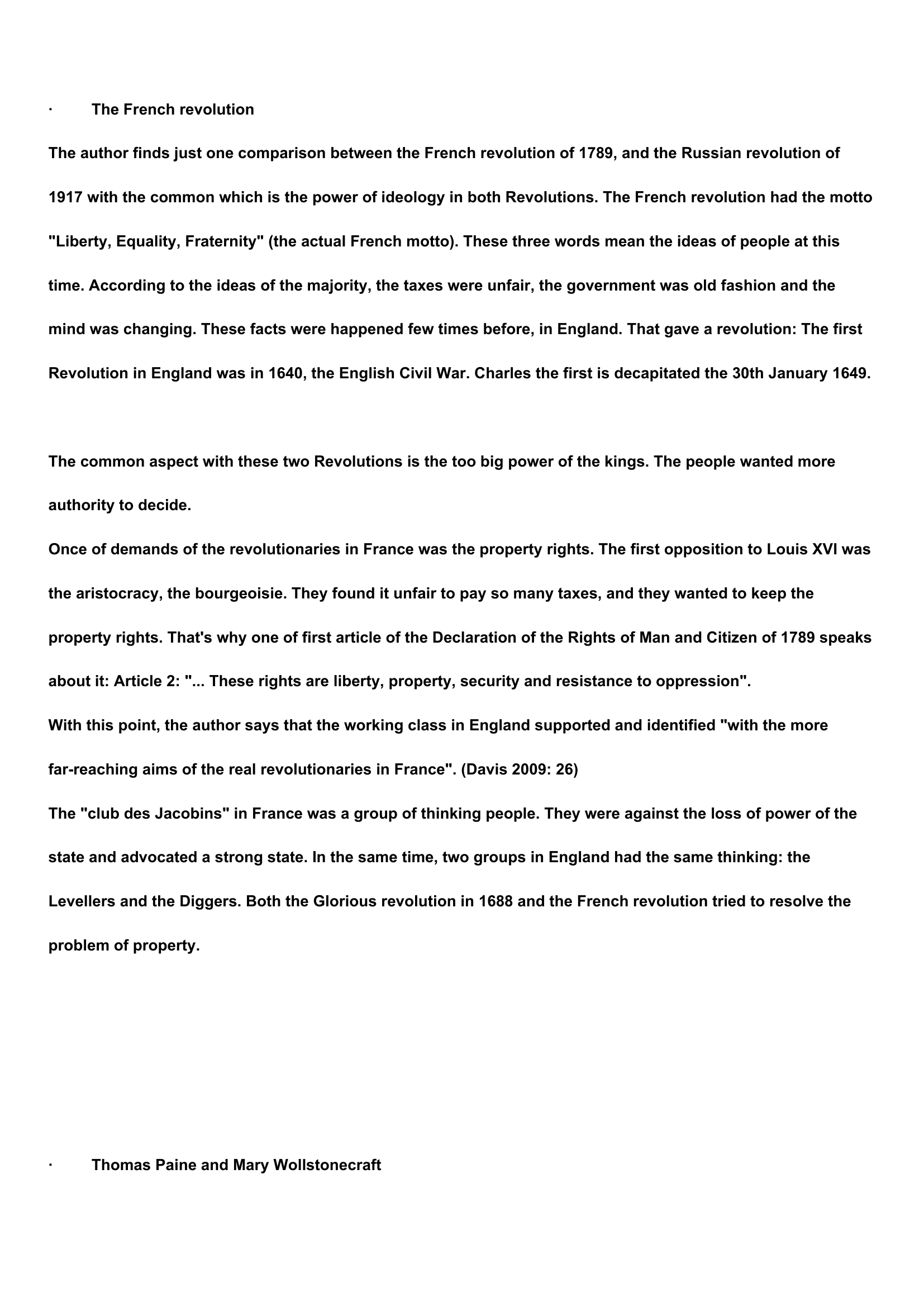The History of the British Labour Movement (1789-1951)
Publié le 15/07/2014

Extrait du document
«
· The French revolution
The author finds just one comparison between the French revolution of 1789, and the Russian revolution of
1917 with the common which is the power of ideology in both Revolutions.
The French revolution had the motto
"Liberty, Equality, Fraternity" (the actual French motto).
These three words mean the ideas of people at this
time.
According to the ideas of the majority, the taxes were unfair, the government was old fashion and the
mind was changing.
These facts were happened few times before, in England.
That gave a revolution: The first
Revolution in England was in 1640, the English Civil War.
Charles the first is decapitated the 30th January 1649.
The common aspect with these two Revolutions is the too big power of the kings.
The people wanted more
authority to decide.
Once of demands of the revolutionaries in France was the property rights.
The first opposition to Louis XVI was
the aristocracy, the bourgeoisie.
They found it unfair to pay so many taxes, and they wanted to keep the
property rights.
That's why one of first article of the Declaration of the Rights of Man and Citizen of 1789 speaks
about it: Article 2: "...
These rights are liberty, property, security and resistance to oppression".
With this point, the author says that the working class in England supported and identified "with the more
far-reaching aims of the real revolutionaries in France".
(Davis 2009: 26)
The "club des Jacobins" in France was a group of thinking people.
They were against the loss of power of the
state and advocated a strong state.
In the same time, two groups in England had the same thinking: the
Levellers and the Diggers.
Both the Glorious revolution in 1688 and the French revolution tried to resolve the
problem of property.
· Thomas Paine and Mary Wollstonecraft.
»
↓↓↓ APERÇU DU DOCUMENT ↓↓↓
Liens utiles
- Winston Churchill I INTRODUCTION Winston Churchill (1874-1965), British politician and prime minister of the United Kingdom (1940-1945, 1951-1955), widely regarded as the greatest British leader of the 20th century.
- George Washington I INTRODUCTION George Washington (1732-1799), first president of the United States (1789-1797) and one of the most important leaders in United States history.
- British History and Civilization: Political Ideas, the State and Society
- Ideology and Rationality in the History of the Life Sciences
- HISTOIRE DU RÈGNE DE L'EMPEREUR CHARLES-QUINT [The History of the Reign of the Emperor Charles V].

































